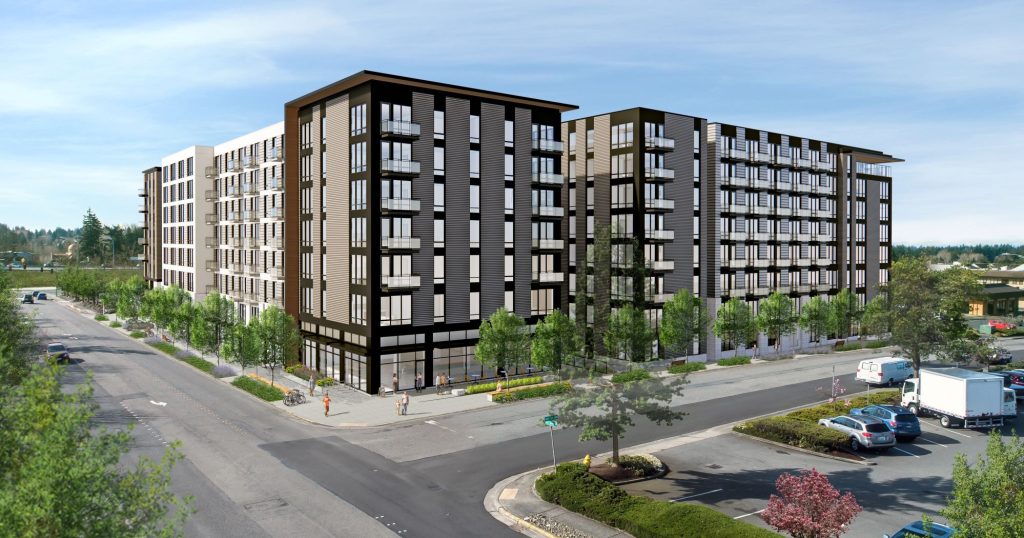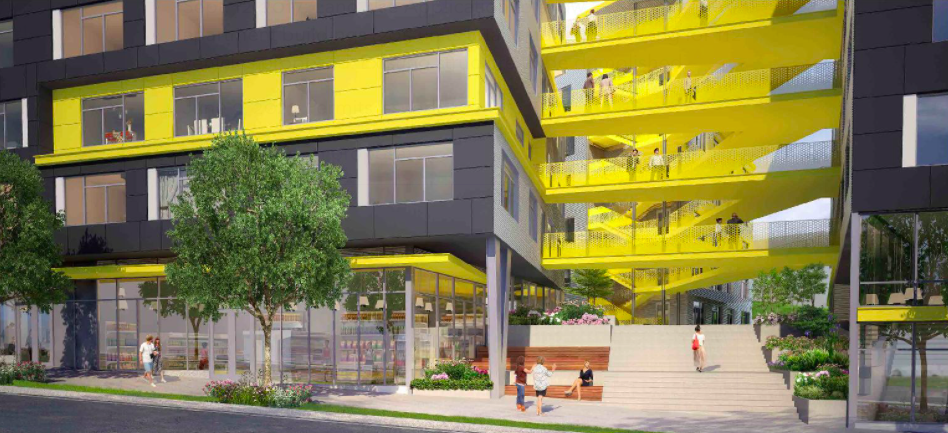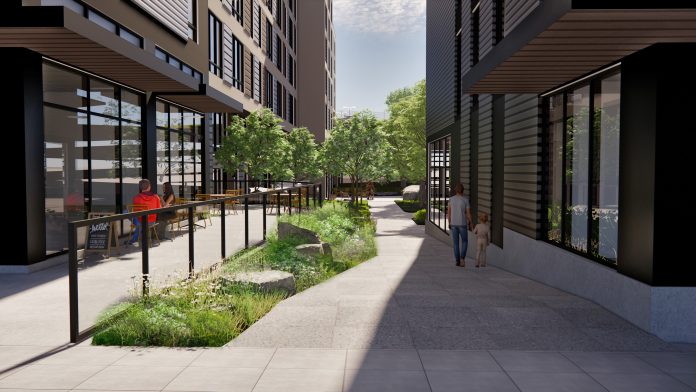
First a quick factoid to kick off this installment of housing notes. U.S. Census data shows that housing construction is on the rise across the country. In November 2021, 1.48 million housing units — both single-family and multifamily — started construction, the highest level since 1973. Even better, the numbers were especially encouraging for multi-family housing: construction broke ground on 734,000 multifamily homes alone, a level not seen since Richard Nixon was president. Whether or not it represents a shift toward addressing a national housing shortage greatly exacerbated by the Great Recession remains to be seen, but it is at the least encouraging news. According to the latest polling results from the Pew Research Center, nearly half of all Americans (49%) now say affordable housing availability is a major problem where they live, which underscores the reach of the problem.
At least some major business leaders are waking up to the need for housing action. Microsoft has been making good on its promise to commit $750 million in housing grants and investments to create affordable homes. The company has announced that it has allocated $583 million towards the preservation and creation of approximately 9,200 homes in Puget Sound over the last three years, although many are still in the development pipeline. The money has been distributed across of a variety of cash grants, bridge loans, land acquisitions, building acquisitions, and other programs creating housing affordable for people of low and moderate incomes.
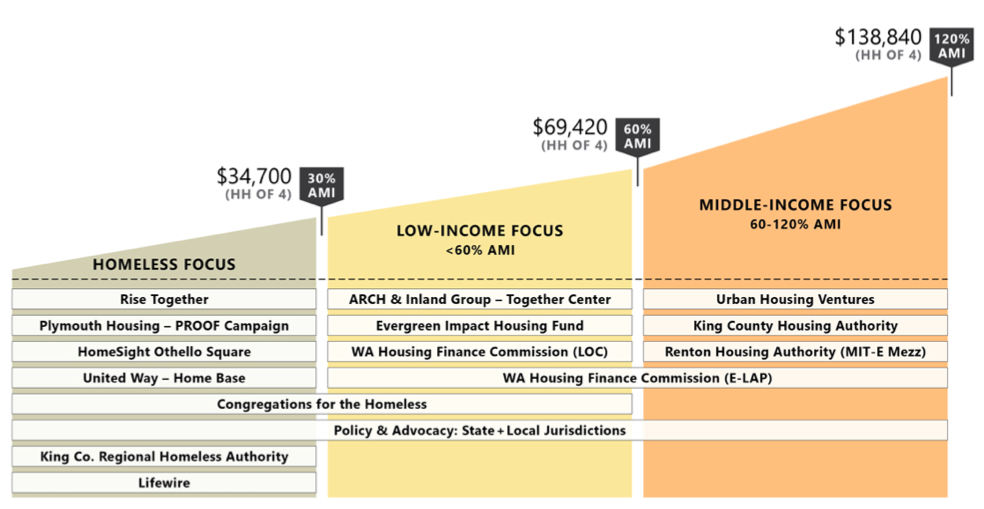
Notable projects supported by Microsoft’s initiative include the first permanent shelter for men experiencing homelessness in Bellevue, Othello Square, a seven story mixed-use project in Southeast Seattle, and 95 Burnett in Downtown Renton, an apartment building close to transit acquired by the Renton Housing Authority.
Keeping this context in mind, let’s move on to more housing stories from across Puget Sound.
Capitol Hill Safeway mixed-use proposal: 400 homes
At nearly 100,000 square feet in size, the Safeway grocery store and surface-level parking lot located in the 15th Avenue neighborhood of Capitol Hill represents a significant opportunity for redevelopment in a neighborhood beloved for its vibrant small business district. Now after years of speculation, the developer (Greystar) has begun to share their plans and solicit feedback on the site’s future. The project is current in Early Design Guidance, with a review meeting scheduled for February 9th at 5pm.
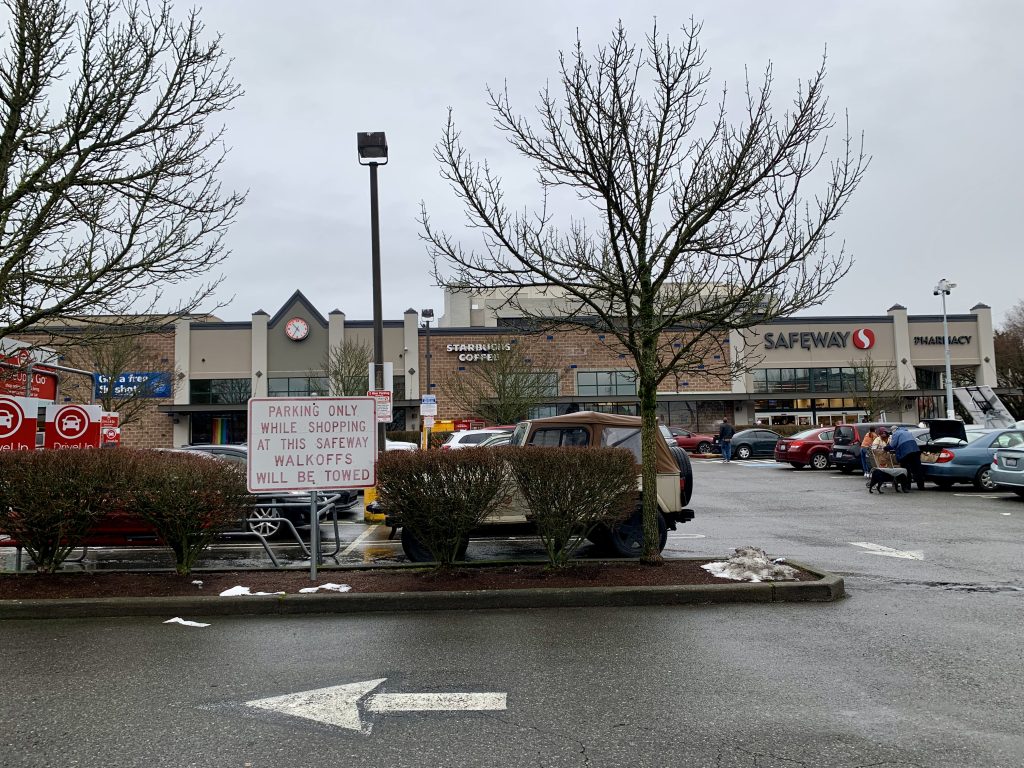
Overall, the proposed design looks promising. Current plans show the developer is seeking to maintain a grocery store on the site and add housing above it. The preferred massing option also breaks up the site into two buildings and includes a courtyard aimed at creating a more vibrant streetscape for pedestrians on 15th Avenue E.
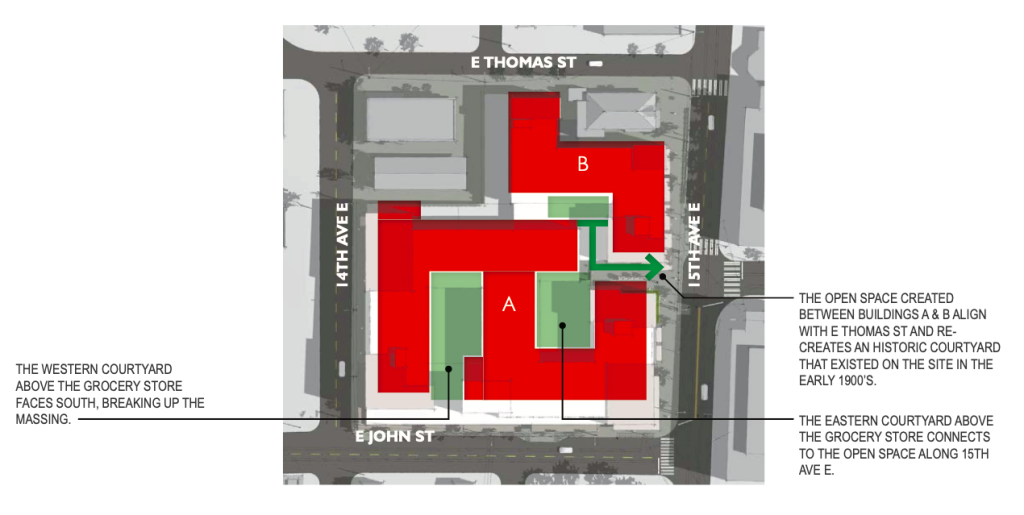
The project is expected to bring 400 much needed apartment homes to the neighborhood, ranging from studios to two bedroom units. At this time the developer is not planning to participate in the Multi-Family Tax Exemption (MFTE) program, which would ensure a quarter of the units are affordable to middle income earners. While MFTE is optional, the Mandatory Housing Affordability program does require that the developer in this case set aside 6% of units as income-restricted affordable units or make an in-lieu payment to the city’s affordable housing trust fund. For a project of this size that payment looks to be in excess of $9,000,000.
At a Pike Pine Neighborhood Council (PPNC) meeting earlier this month, some participants urged the developer to consider participating in the MFTE program, which provides property tax exemptions to the owner in exchange for the creation of income-restricted units.
Housing coming to a Downtown parking garage in Bellevue
An innovative project continues to advance in Downtown Bellevue that is planned to construct five stories of housing above an existing six story parking garage at NE 8th Street. Marketed as a “luxury apartment project,” 312 homes will be constructed on site, along with 3,900 square of retail space. 900 parking stalls are cited as included in the project — fingers crossed these reflect the numbers from the existing garage. The building is being designed by Encore Architects and developed by Pastakia + Associates. It follows in the footsteps of projects like One Ala Moana in Honolulu where 18 stories of housing were constructed above an existing parking garage. Let’s hope its part of a trend of rethinking how much our city’s space is devoted to car storage and finding creative ways to reuse that space.
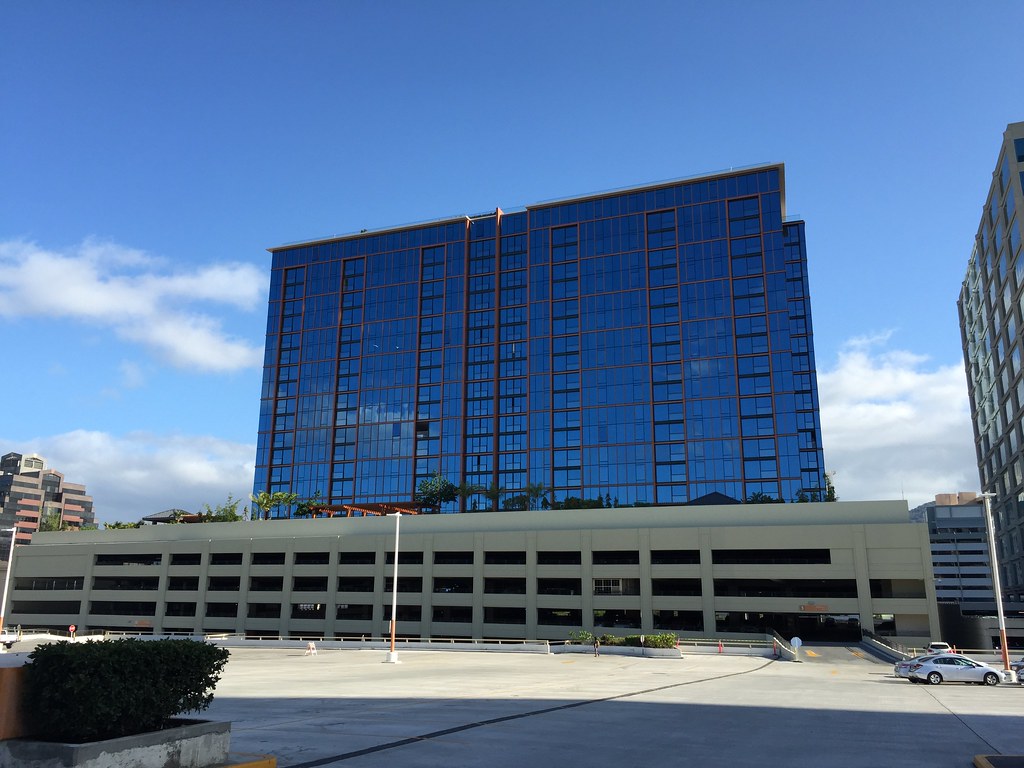
Transit oriented development coming to Northgate, Judkins Park, and Lynnwood
A stone’s throw from the Link light rail station in Northgate, Bridge Housing and Community Roots Housing have partnered to develop a seven-story building that will have 232 affordable homes with no onsite parking. The project is currently moving through administrative review process and the design proposal is available on the Seattle Department of Construction and Inspection (SDCI) website.
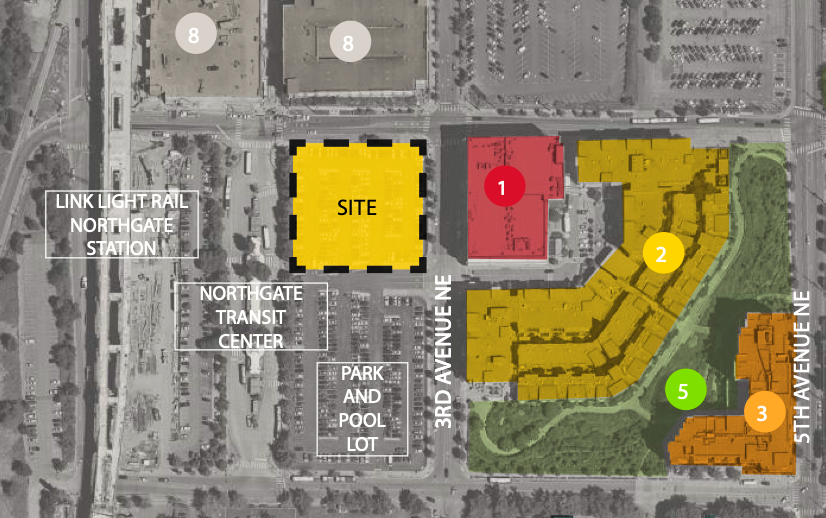
The preferred design option for the site includes a south facing courtyard. There are also plans for a daycare facility on the ground level of the development.
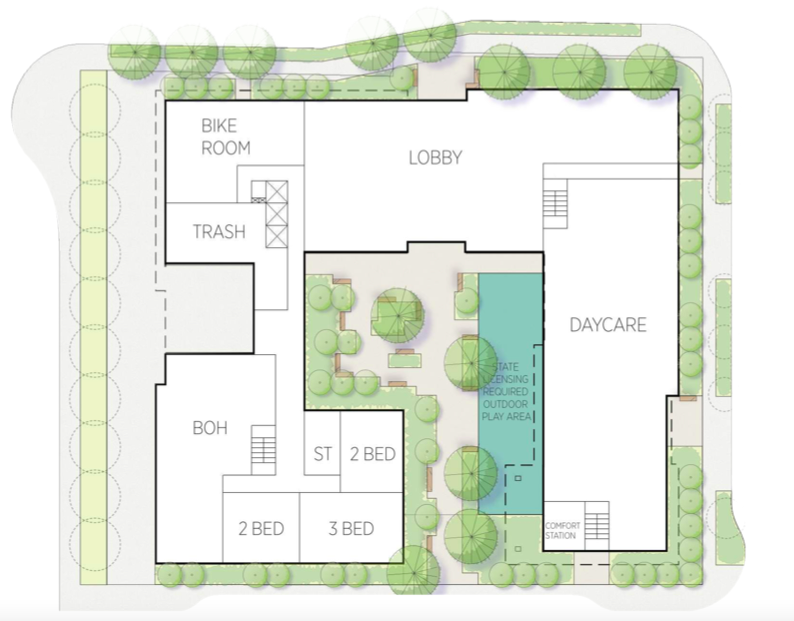
In Lynnwood, another mixed-use development with a central courtyard has broken ground about a ten minute walk from the future Lynnwood Station. Dubbed the “Ember” building, the development will bring 361 homes to Lynnwood’s City Center, 72 of which will be restricted as affordable for low and moderate income households through Lynnwood’s version of the MFTE program. Expected to open in 2024 alongside the arrival of Link light rail, Ember will have 9,215 square feet of ground level retail. The development team includes Hatteras Sky, Trent Development, and capital partner Cresset Real Estate. The partners are also behind the development of a 206-home mixed-use project in construction in Seattle located less than a mile from the future Judkins Park Link light rail station. 20% of the homes will be affordable via the MFTE program, and the development is expected to welcome new residents in 2023.
Southend Tiny House Village breaks ground
A partnership between Truevine of Holiness Missionary Baptist Church, the Refugee Women’s Alliance of Washington (ReWA), and the Low Income Housing Institute (LIHI) is bringing 40 tiny houses for people exiting homelessness to Seattle’s Rainier Beach neighborhood on Martin Luther King Way S. The village will also include case management offices, bathrooms, showers, a laundry facility, a kitchen, and community spaces. The village will serve families, couples, and individuals, and it will have a special focus on meeting the needs of refugees, immigrants, and people who are BIPOC (Black, Indigenous, people of color). As with nearby Othello Tiny House Village, the longterm plan for the site is to be converted into a permanent affordable housing development.
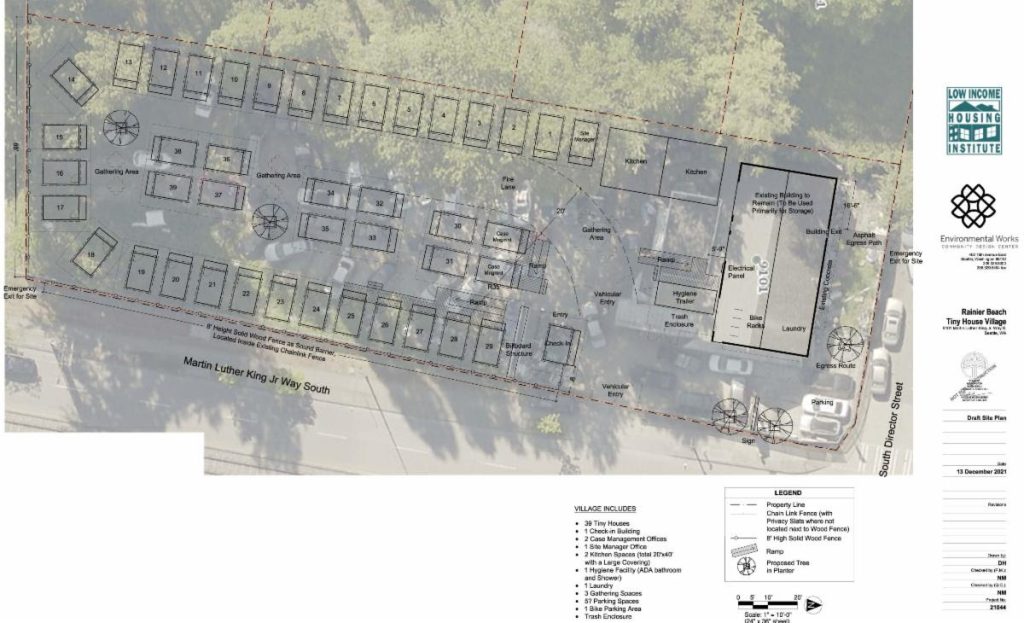
Natalie Bicknell Argerious (she/her) is a reporter and podcast host at The Urbanist. She previously served as managing editor. A passionate urban explorer since childhood, she loves learning how to make cities more inclusive, vibrant, and environmentally resilient. You can often find her wandering around Seattle's Central District and Capitol Hill with her dogs and cat. Email her at natalie [at] theurbanist [dot] org.


